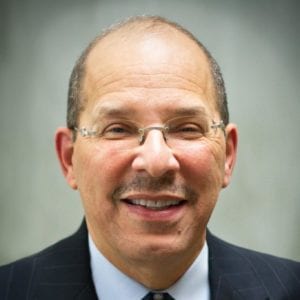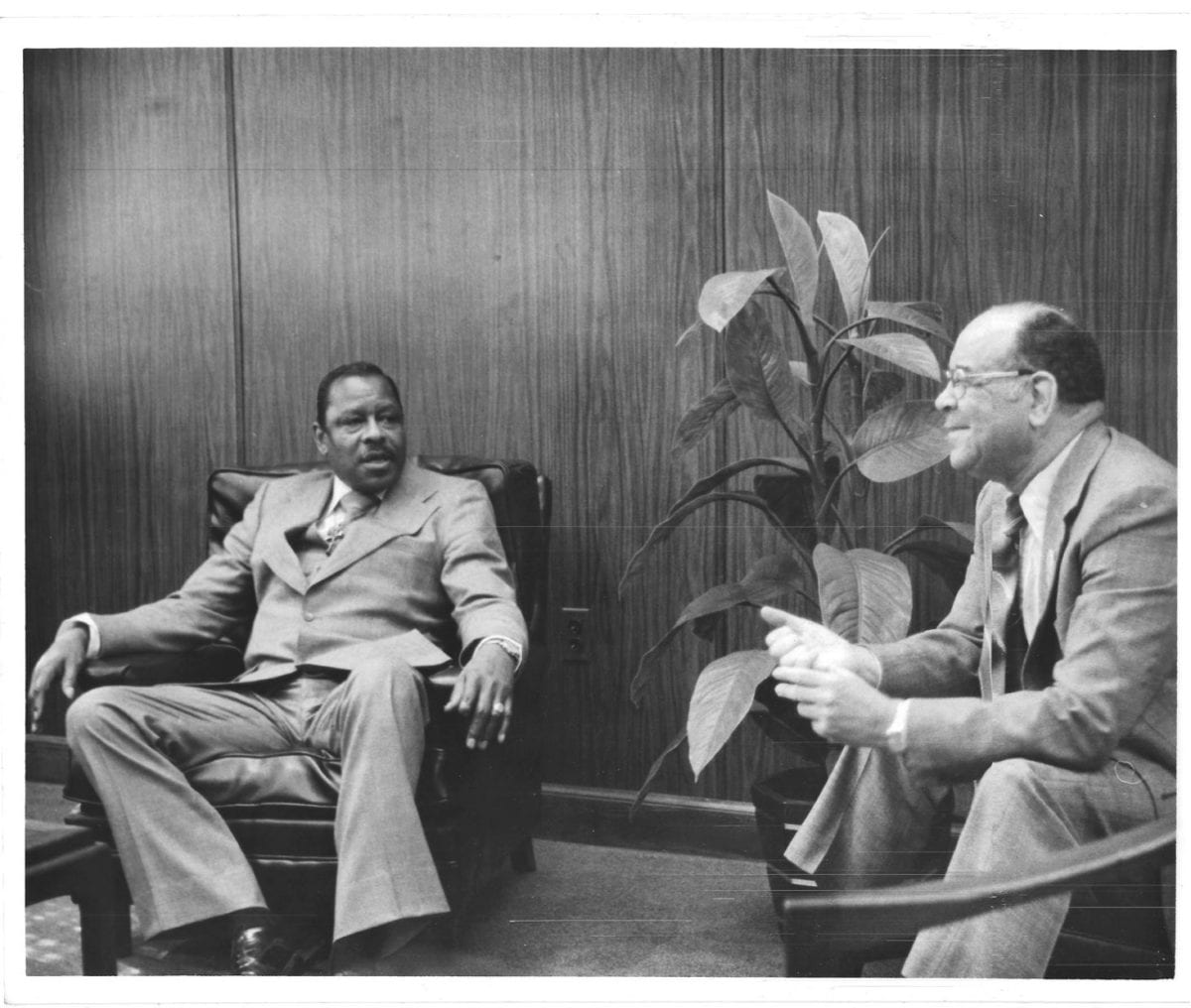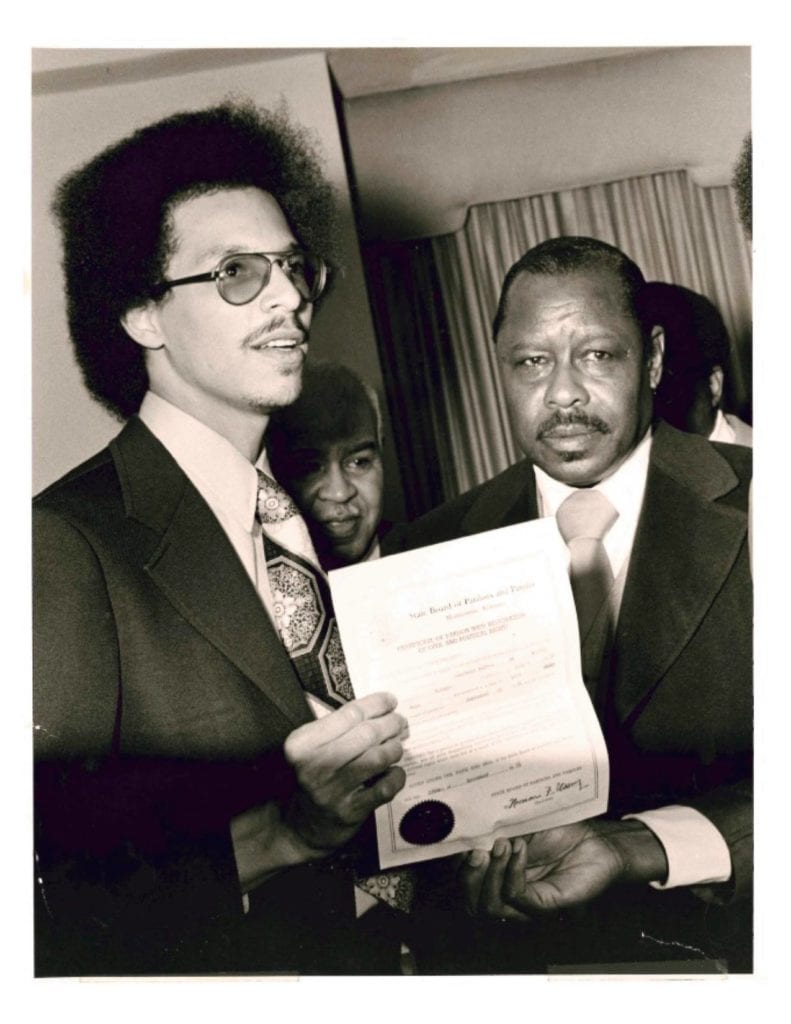The Big Picture –
By Glynn Wilson –
While the bloggers in Birmingham think they are having a field day on Twitter by making fun of Donald Watkins, the lawyer and businessman convicted for defrauding investors in federal court this week, it seems more like a cautionary tale of a favorite son who got greedy and flew too close to the sun, like Icarus.
Recall the story from Greek mythology of Daedalus, the great engineer who designed the Labyrinth for King Minos to jail the Minotaur and gave the secret to Princess Ariadne, which enraged the King. He had Daedalus and his son Icarus imprisoned in the tower in Crete.
In a bold escape plan, Daedalus fashioned wings from a frame with bird feathers attached with wax. He warned Icarus not to indulge in self-satisfaction by flying too high, too close to the sun. But his ego was too great, and he flew up to Apollo thinking his wings made him equal to the Gods. Forgetting his purpose and the gift of flight from the Gods, Icarus caught Apollo’s attention approaching the Sun God’s fiery chariot, and his hubris was not met with mercy. Apollo allowed the heat from the sun to melt the wax holding the feathers together, plunging Icarus down to his doom.
Donald Watkins was clearly a highly intelligent and talented African American man, the son of longtime president of Alabama State University Levi Watkins and school teacher Lillian Bernice Varnado. It appears he just got greedy and flew a little too close to the sun.
For a detailed look at who Donald Watkins was, see the entry in the online encyclopedia Bham Wiki. Here’s my summary and more commentary.
He was one of the first African Americans to graduate from the University of Alabama School of Law. After graduating in 1973 he moved to Montgomery to begin his practice in the office of renowned civil rights attorney Fred Gray.
As a young lawyer he convinced a state parole board and Governor George Wallace to pardon Clarence Norris, the last of the “Scottsboro Boys” convicted of rape under questionable circumstances in 1931. This was great work and earned him much deserved praise.
Shortly thereafter he won a seat in the Montgomery City Council where he frequently clashed with Mayor Emory Folmar. Yet Folmar later hired Watkins as city attorney, calling him a very smart lawyer.
In 1979 Watkins founded his own practice and was appointed as special counsel to Birmingham Mayor Richard Arrington in 1985, defending the city against lawsuits as well as representing Arrington during federal corruption investigations, where he learned that taking an aggressive public stance will get you on the front pages of the newspapers and on TV news, and could be successful. He constantly attacked Republican U.S. Attorney Frank Donaldson, appointed by President Ronald Reagan, and claimed the investigation was racially-motivated, casting the prosecutor as the new “Bull Connor.” He claimed a trial record of 37 victories in 38 cases, and reportedly earned nearly $10 million in fees from the city.
Meanwhile I was the only newspaper reporter in Alabama investigating Republican Alabama Governor Guy Hunt, and would later be cited in a major book on the corruption of the Justice Department in the cases of Arrington and Hunt.
Secret Deals, Political Fixes and Other Misadventures of the U.S. Department of Justice
When Shoal Creek Golf Club outside of Birmingham came under fire by Watkins for its all white membership when chosen to host the PGA Tournament in 1990, Watkins was offered a membership, but instead helped get Booker T. Washington Insurance Company president Louis Willie an honorary membership.
Some credit Watkins with orchestrating the resignation of Auburn head coach Pat Dye in 1991 when he represented Auburn University defensive back Eric Ramsey in a case that led to the NCAA probation for the team.
His fame and fortune seemingly made, Watkins publicly announced he would retire from practicing law and go into business. He ended up part owner of the Masada Resource Group, a company that was involved in turning municipal waste into ethanol, as well as investing in other companies and evan a bank that did not do so well financially, Alamerica Bank on Highland Avenue in Birmingham that later closed down.
Trying to turn his millions into billions, it seems (he once claimed his net worth was $1.5 billion, but those numbers were probably as cooked as the value of HealthSouth under Richard Scrushy and Donald Trump’s net worth for Forbes magazine), Watkins kept flying toward the sun by making a bid to buy a Major League Baseball team beginning in 2002. That didn’t work out so well.
But when HealthSouth founder Richard Scrushy was charged with fraud under the new Sarbanes-Oxley Act in 2003, Arrington and Scrushy talked Watkins into coming out of retirement to handle Scrushy’s legal defense.
While I had met Watkins before and covered some of the high profile stories he was involved in working for newspapers and wire services, it was during the Scrushy trial that I got to know Watkins up close and personal. I did my last work for the New York Times at that time, before the trial began on the advance coverage, and handled the day-to-day trial coverage for the first five weeks, through the testimony of the prosecution’s star witness. Watkins would hold court every night during the trial at Lou’s Pub on Birmingham’s Southside, where the press and media would gather for libations and see what Watkins would reveal about what was to come in court the next day.
While interviewing Watkins along with out of town Times correspondent Simon Romero once, Watkins revealed that Scrushy wrote him a check for $5 million at the outset of the trial on Watkins’ insistence, collecting his legal fees in advance. None of the contents of that interview were ever made part of a story, and this correspondent, whose experience was in covering Latin America and then the Enron scandal in Houston, Texas and an inexperienced free-lance photographer blew a chance for me to get photos and coverage of a sermon Scrushy was supposed to deliver at the African American Guiding Light Church in Roebuck east of Birmingham.
Watkins had convinced Scrushy to donate $1 million to the large, influential black church in an effort to influence the jury pool and convince people in Birmingham that he had gotten religion after being caught in his crimes of inflating the value of HealthSouth and cashing in his stock options, driving the stock price way down and nearly bankrupting the company.
In Birmingham, Richard Scrushy Is a Local Story
Ex-HealthSouth Officer Says He Faked Numbers for Chief
Witness Tells of Maneuvers With Numbers at HealthSouth
Ex-HealthSouth Officer Testifies About Meeting Boss on Lake
Will the Real Richard Scrushy Please Step Forward
Watkins said all along that Scrushy would be acquitted in that case, and he turned out to be right. The jury found Scrushy not guilty. My impression of Watkins was that he was a highly intelligent and very personable person who knew what he was talking about. But his actions after that demonstrated that he also suffered from an Icarus Complex, characterized by attention-seeking narcissism.
After winning the case, Watkins made a public point that he was leaving Birmingham to set up shop in the bigger markets of Atlanta and Miami, then he made a show of leaving the Democratic Party and becoming an independent, maybe even considering a run for national political office. He launched the Voter News Network and started calling for voters to choose candidates based on their qualifications rather than party affiliation. Who knows what happened to the money he raised for that. Much of it probably ended up in his pocket, although it’s a mystery how one person could burn through so much money in such a short time frame.
He did have four children and an ex-wife to take care of, but millions seem to have disappeared.
Then when Facebook came around and started to catch on, Watkins started blogging on the platform and claiming to be a journalist, even attaching a copyright claim and symbol to his posts. When I talked to him about this and tried to get him to understand that Facebook owns all the content on its platform, and tried to get him to invest in my real news journalism project at NewAmericanJournal.Net, Watkins’ flawed personality really began to show through. It became clear that he was a taker, not a giver. I stopped following him on Facebook when he started publishing false, unsubstantiated allegations against people in a sensational effort to get more famous and more followers in a way that would never generate any revenue to pay for real journalism.
He teamed up with another sensational blogger and started tossing out allegations against Alabama Governor Robert Bentley and claiming to be breaking news about federal judge Mark Fuller, the Republican who had helped orchestrate convictions against Scrushy along with former Alabama Governor Don Siegelman in Montgomery. But it was the Atlanta-Journal Constitution newspaper that broke the story on Fuller hitting his drunken wife in an Atlanta hotel. Newspapers also published the allegations against Bentley, for which he was later convicted and removed from office.
At the same time Watkins was clearly a little unhinged, making one bad investment after another, a children’s book company, an airline, at one point entering into an agreement with the government of Namibia to mine and sell uranium.
Then in 2016 his life began to unravel. The Securities and Exchange Commission filed a criminal complaint against him in federal district court in Birmingham claiming he fraudulently solicited millions of dollars from professional athletes as investments in Masada Resource Group and Watkins Pencor. This week he was convicted on seven counts of wire fraud, two counts of bank fraud and one count of conspiracy for using company funds for personal use, including personal expenses and alimony payments.
Auburn basketball and NBA star and sports commentator Charles Barkley testified against Watkins, saying he never paid back loans or made good on investments of more than $6 million. Former Secretary of State and Alabama native Condoleezza Rice testified against Watkins for claiming she was part of his company when she never was.
Watkins lied, and acted selfishly. The boneheaded move to represent himself and ask himself questions and answer them on the stand clearly backfired. Of course he is still claiming his innocence and vows to appeal, but the case appears pretty iron clad from here.
During his life, Watkins was probably influenced by the likes of Donald Trump, who always claimed there’s no such thing as bad publicity all the way back to his days in professional wrestling.
How Wrestle Mania Trumped Intelligence in U.S. Politics
Watkins no doubt watched with interest as former NFL and movie star O.J. Simpson was acquitted for murdering his wife, a sensational story that received wall-to-wall coverage around the clock on the new 24-hour news network CNN. The conventional wisdom in the U.S. news media for the past four decades in American life has been that true justice is for the poor, not the rich and famous.
But if Mr. Watkins is listening now, he should know that the blind lady of justice finally caught up with Richard Scrushy and O.J. Simpson. She caught up with Robert Bentley and Judge Mark Fuller. She is about to bring down Donald Trump, although he doesn’t know it yet.
If Donald Watkins has a good bone left in his body and wants to do the right thing, he should come clean, admit his guilt, show remorse, and maybe use some of the money he has left to invest in something that might actually do some good, like real journalism and a real news app.
Like Martin Luther King, Jr. said, “… the arc of the moral universe is long, but it bends toward justice.”
It takes a lot of heat, pressure and time to overcome the inertia of society for justice to come down like rain.
The Arc of the Moral Universe Doesn’t Bend Toward Justice Without Pressure
But if you fly too high and too close to the sun, you will end up crashing and burning back to earth.
This should be a cautionary tale for anyone seeking and reaching success in life. Learn to live within your means and show a little character, class and humility. You don’t want to end up like Icarus.
Check out the literature on the Icarus Paradox.
More Photos

















